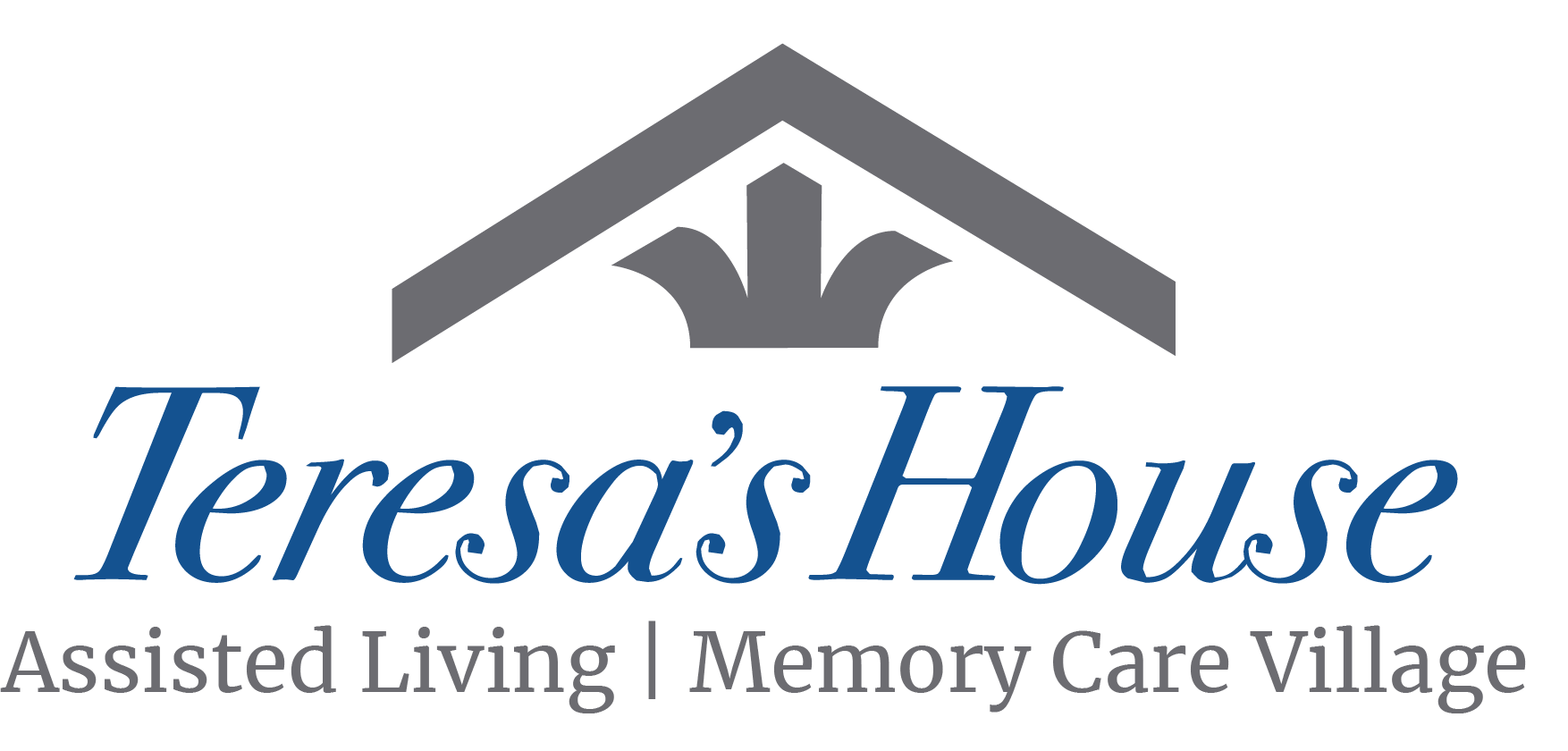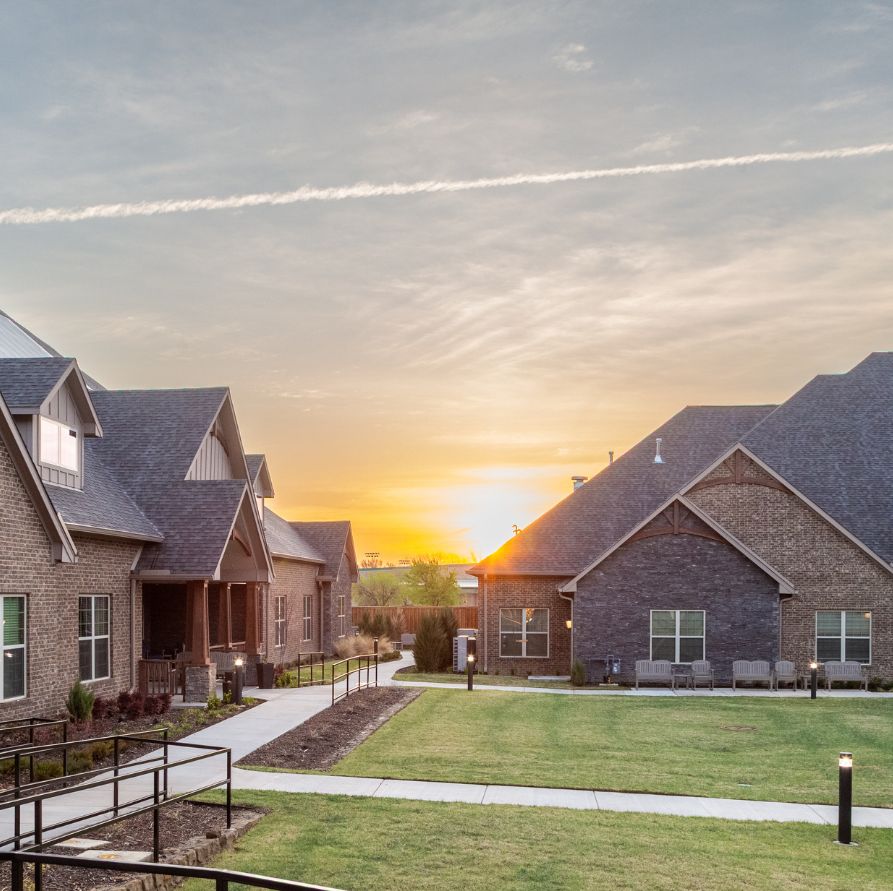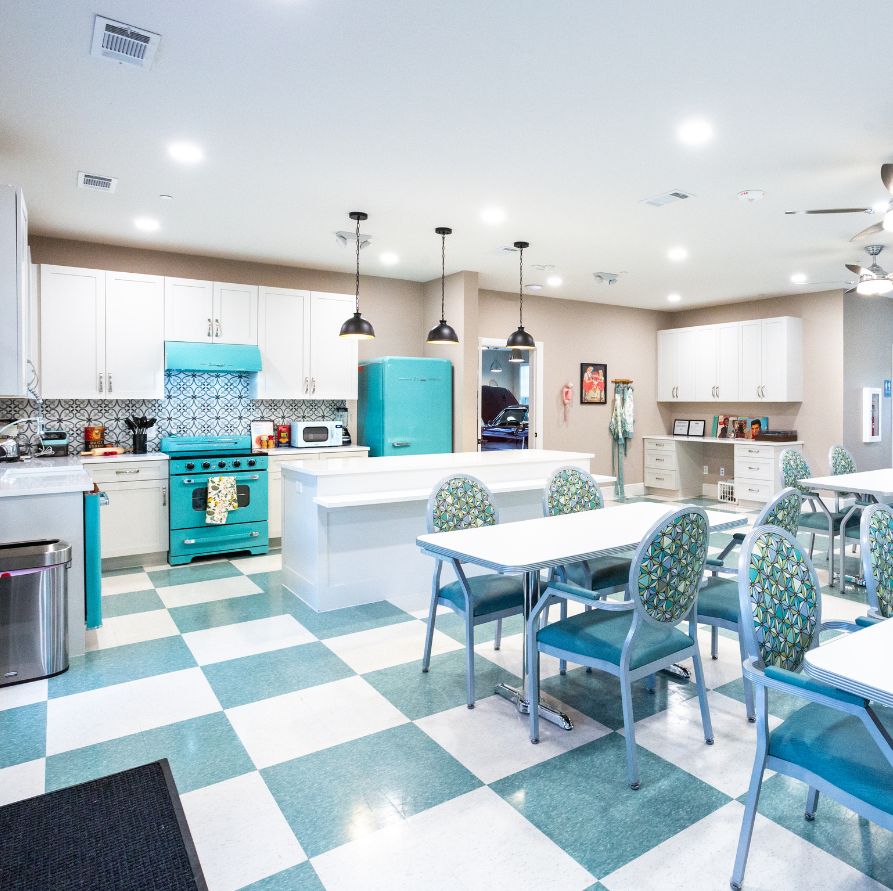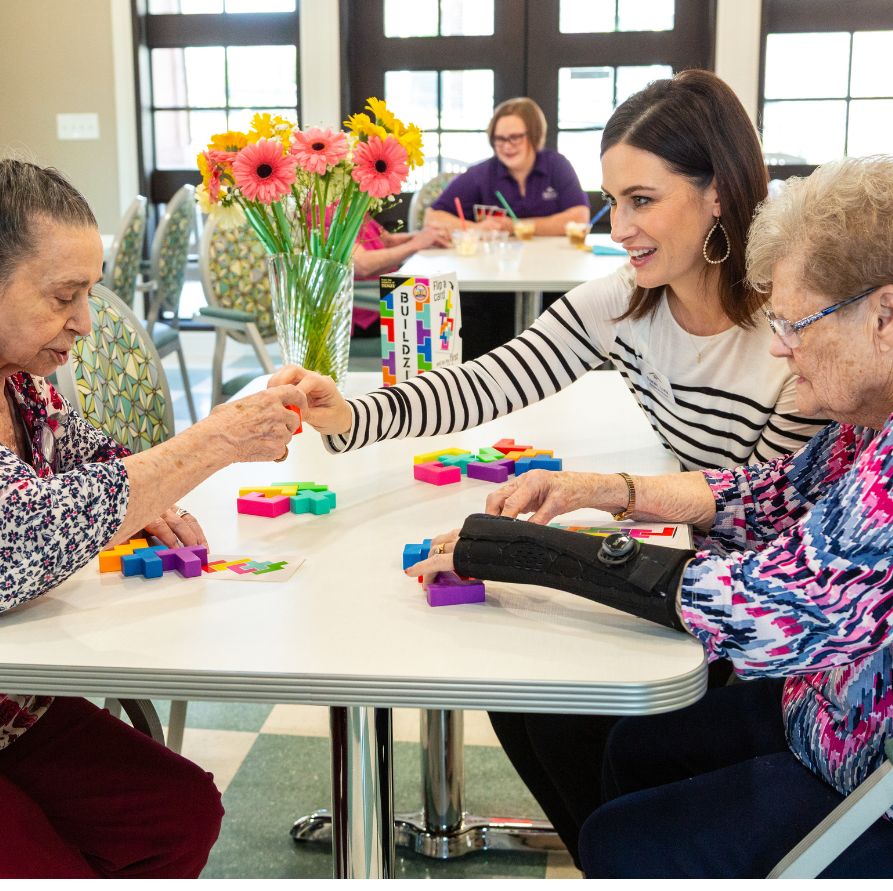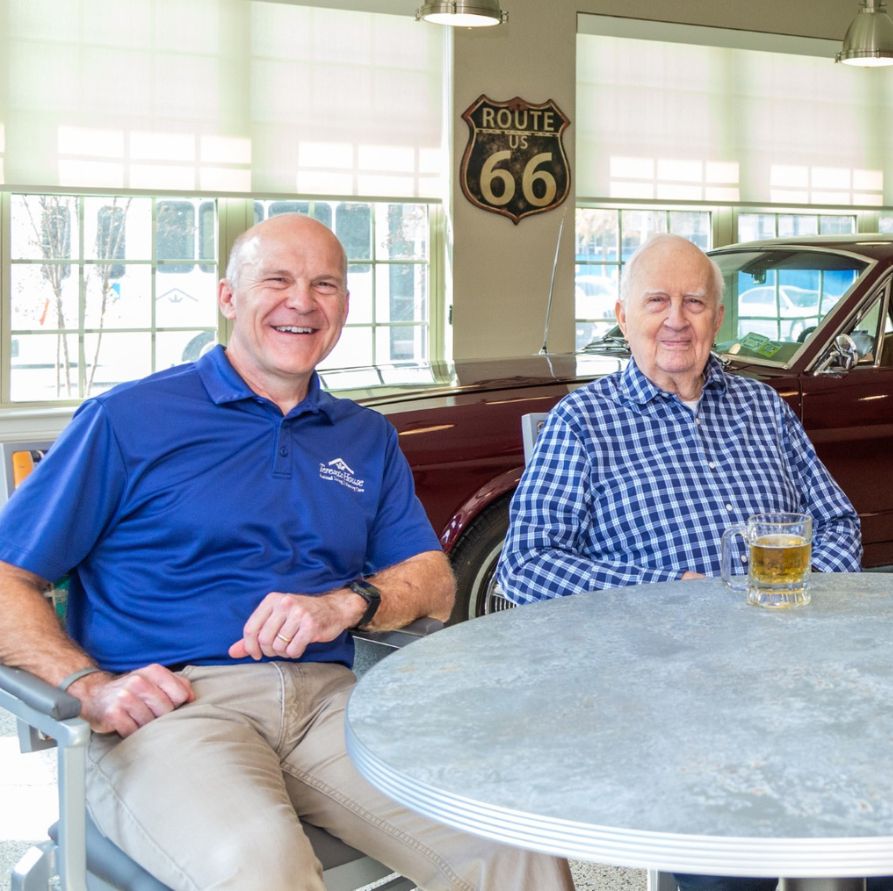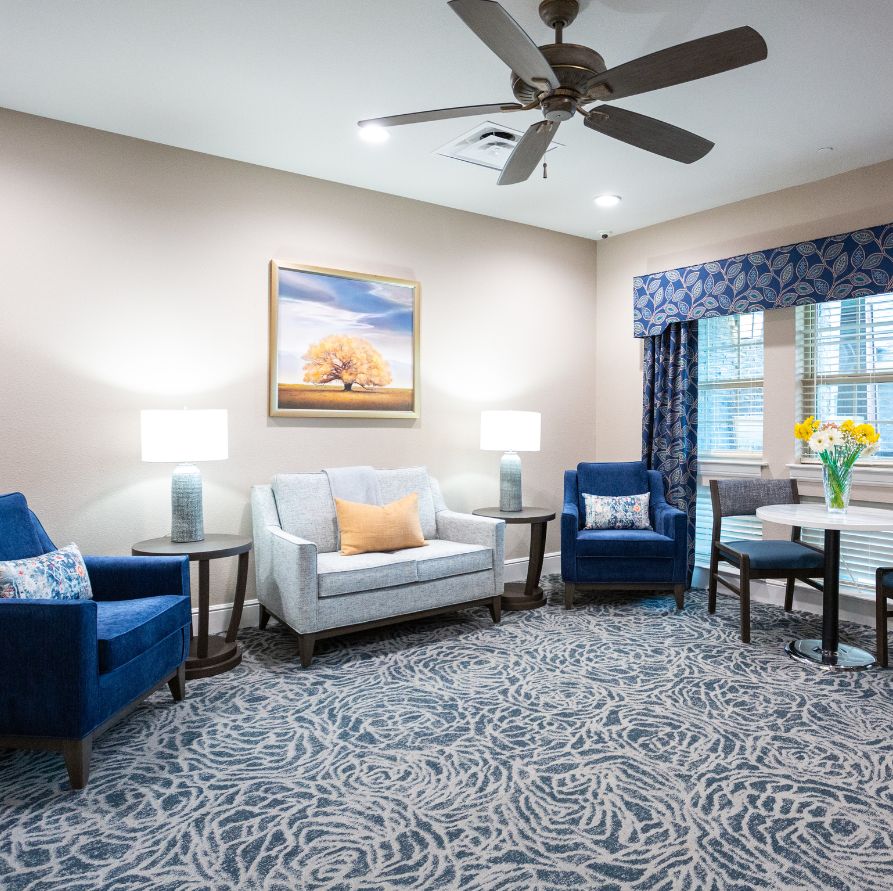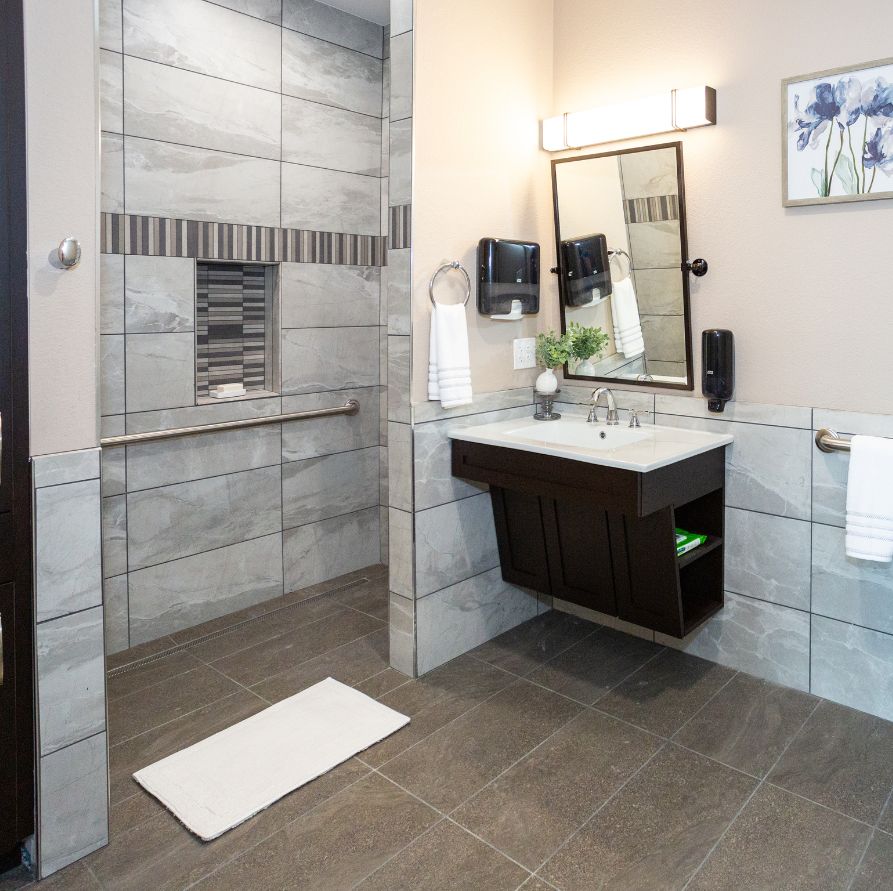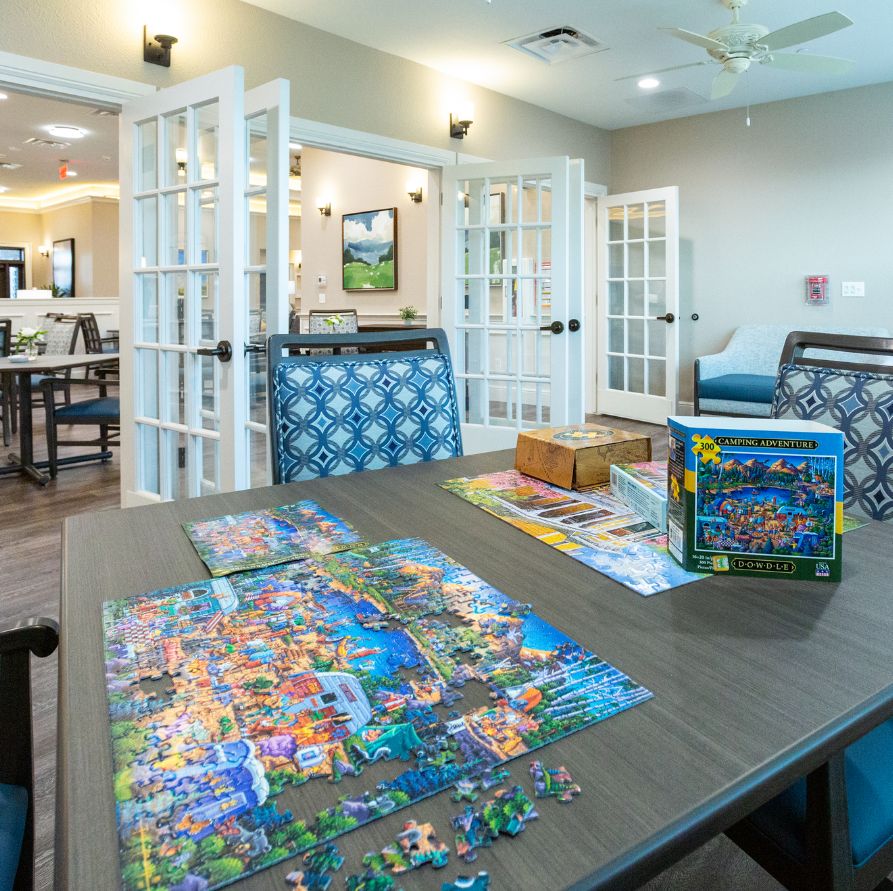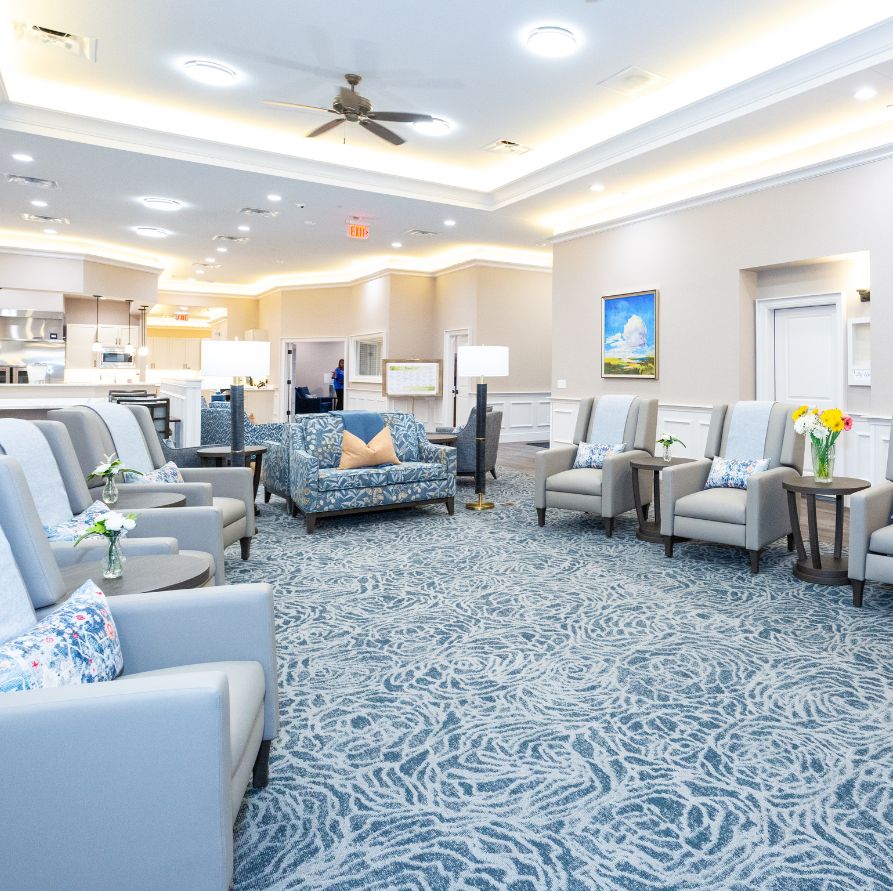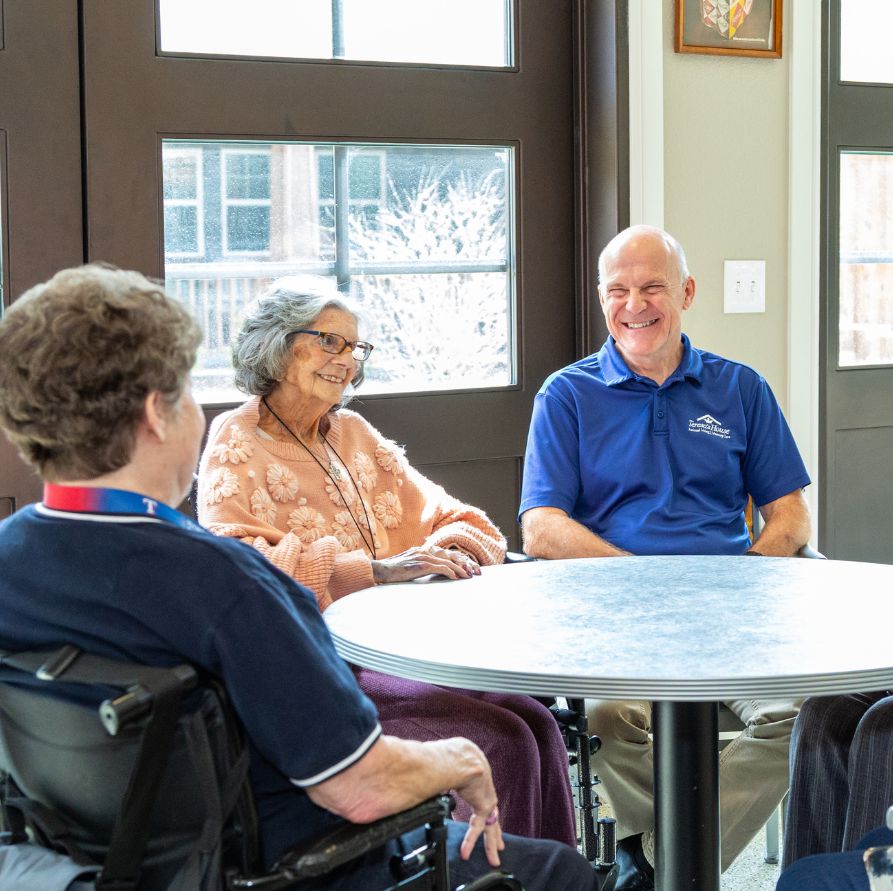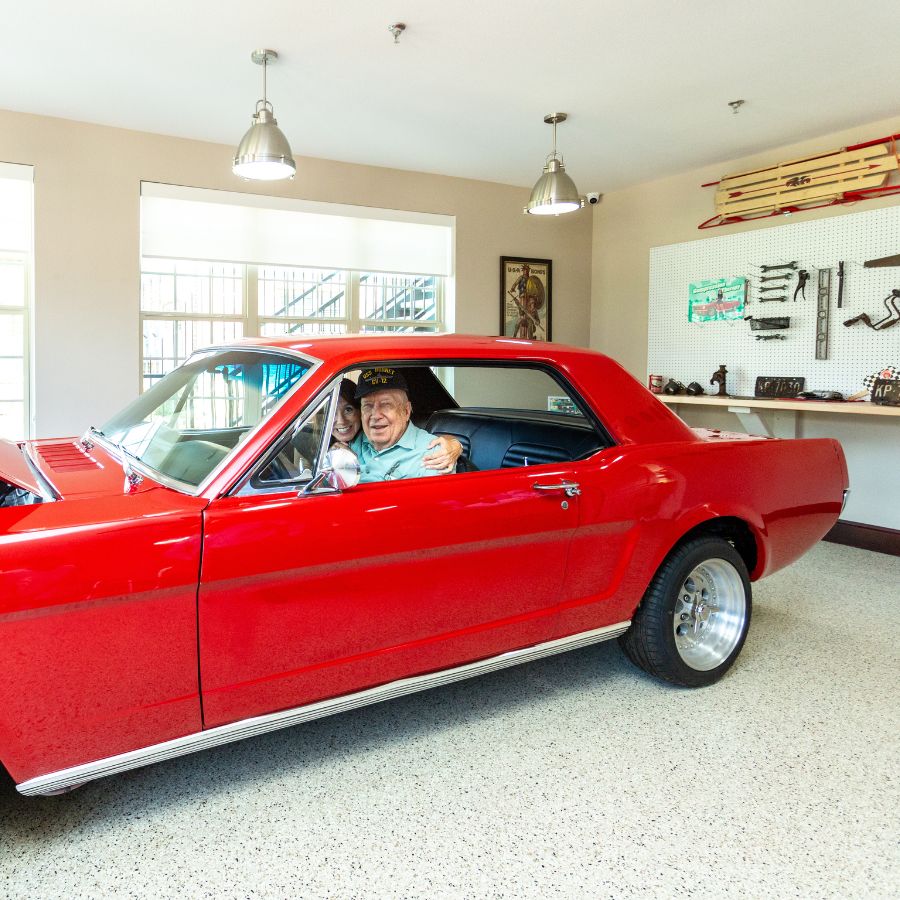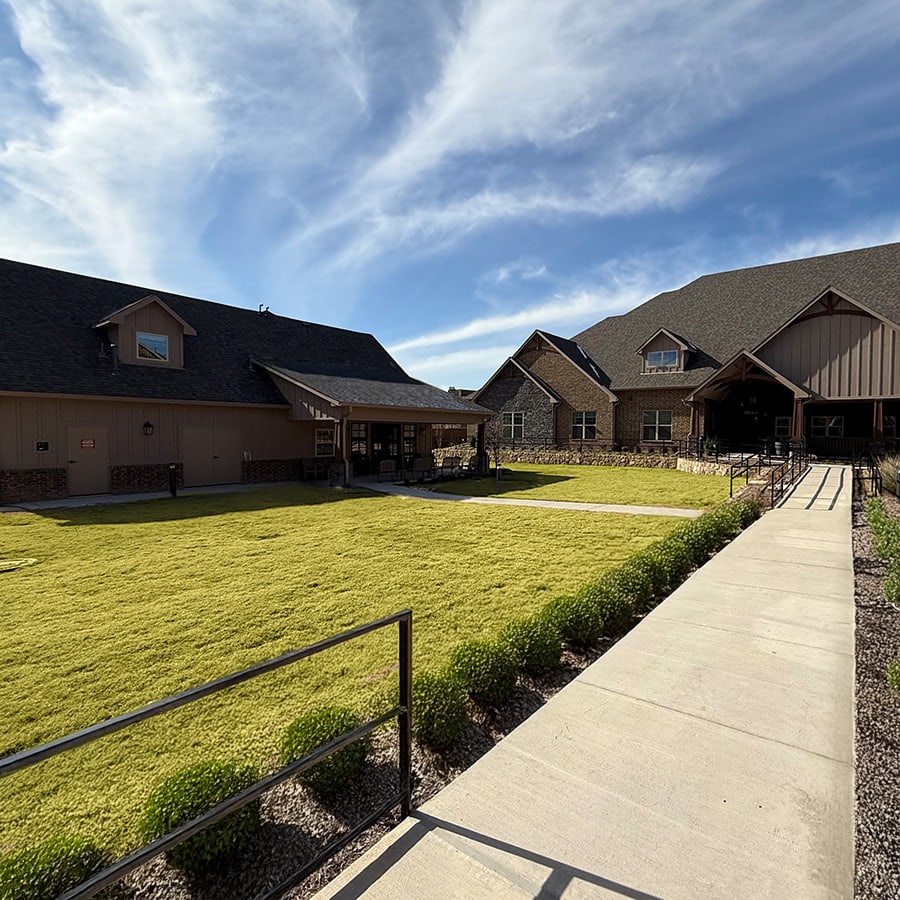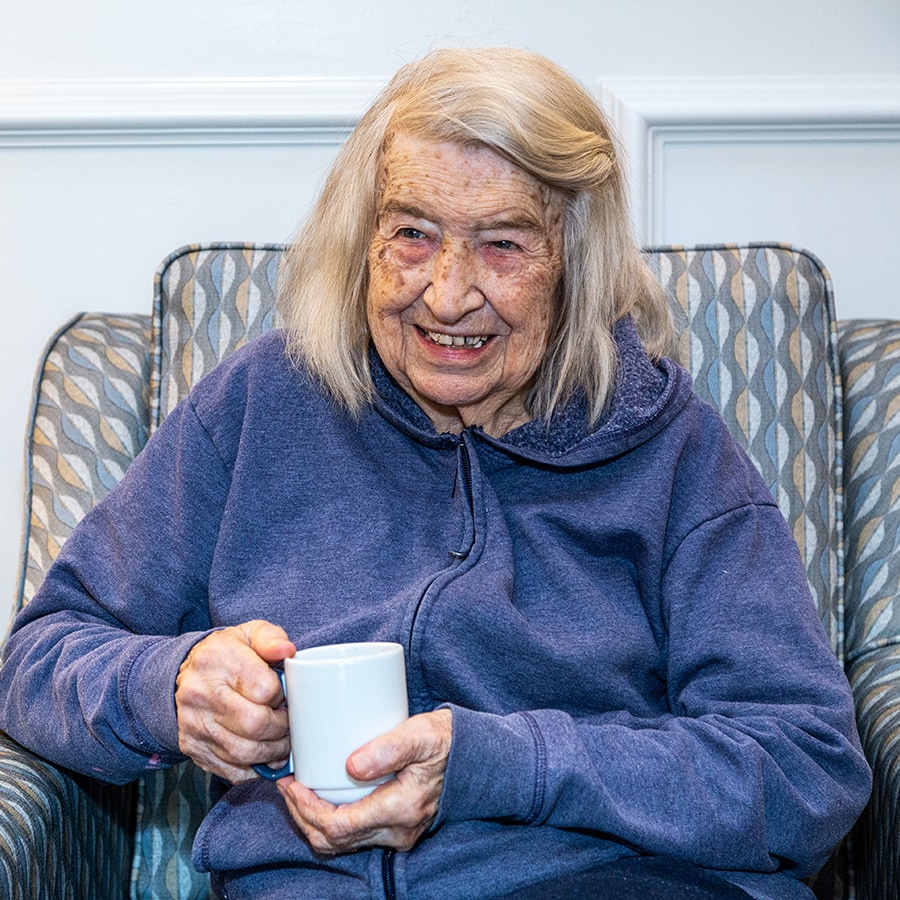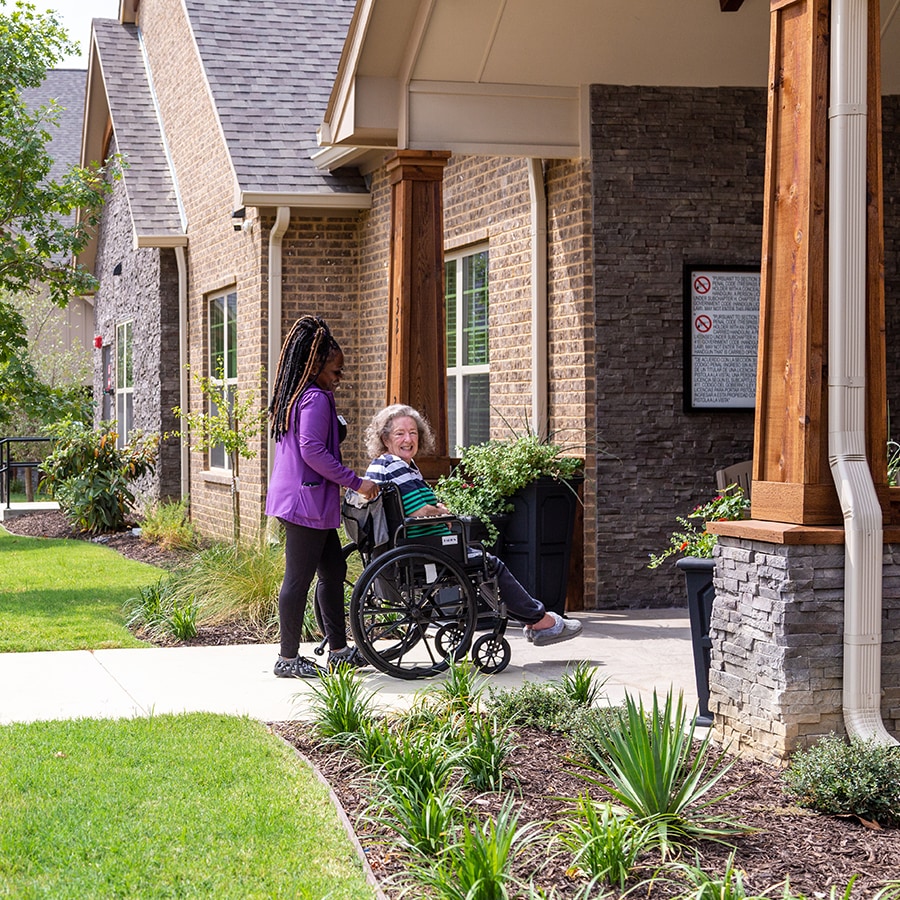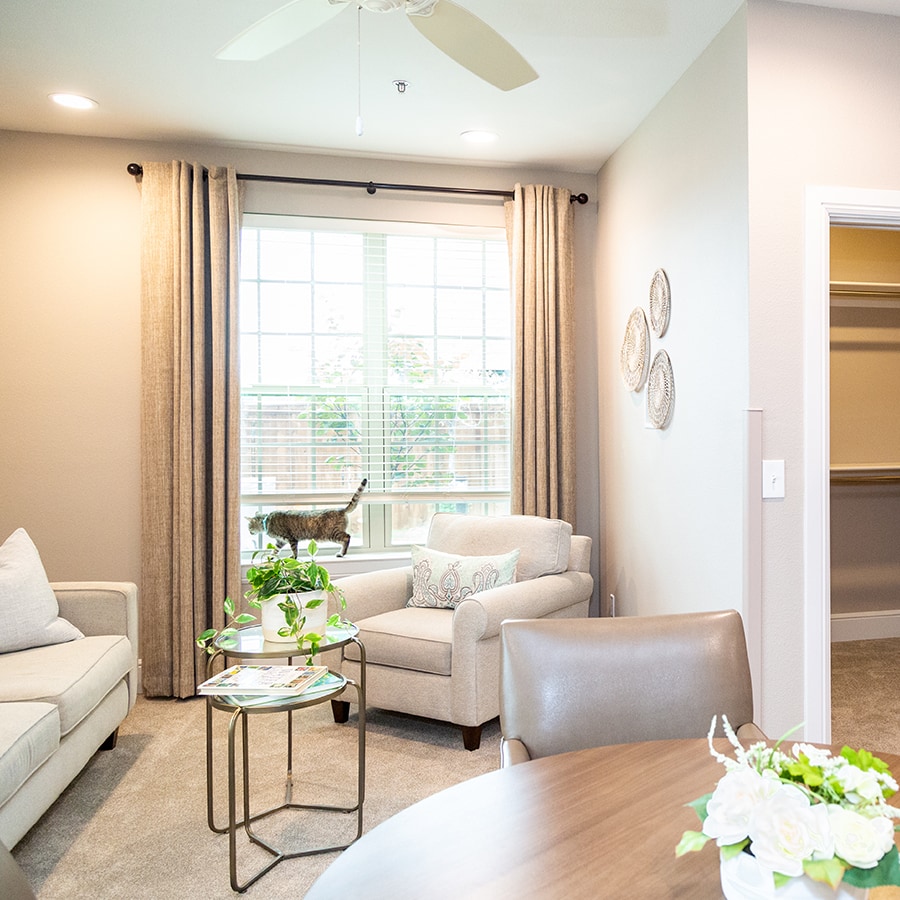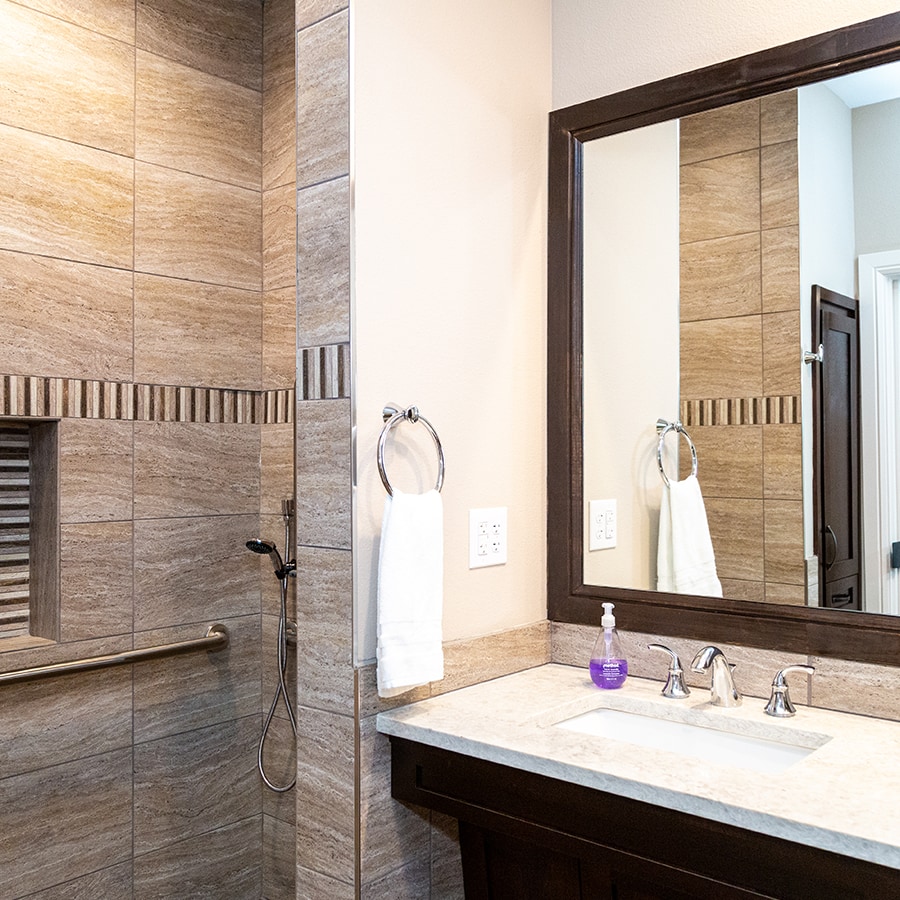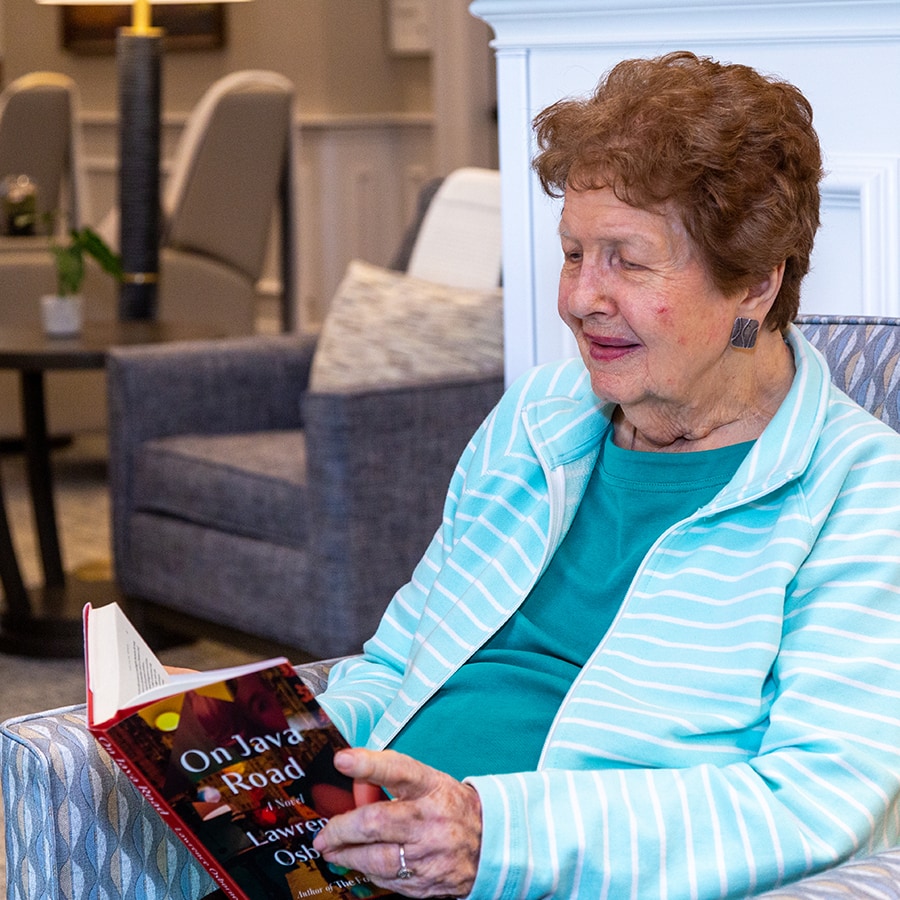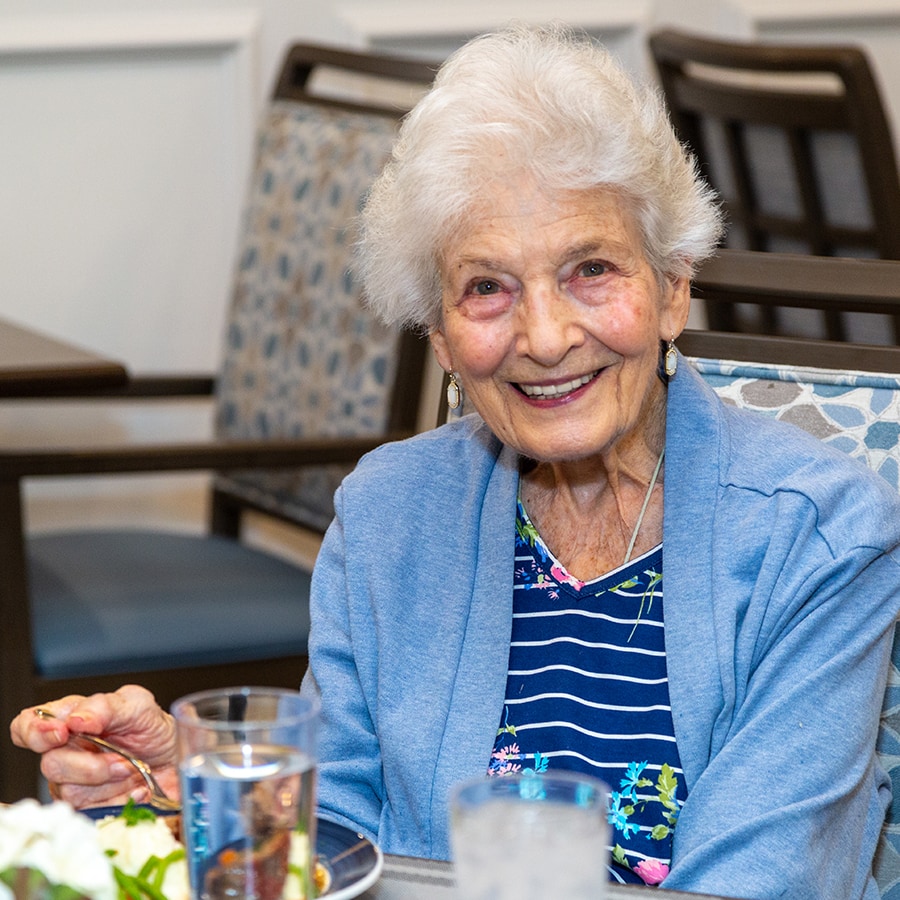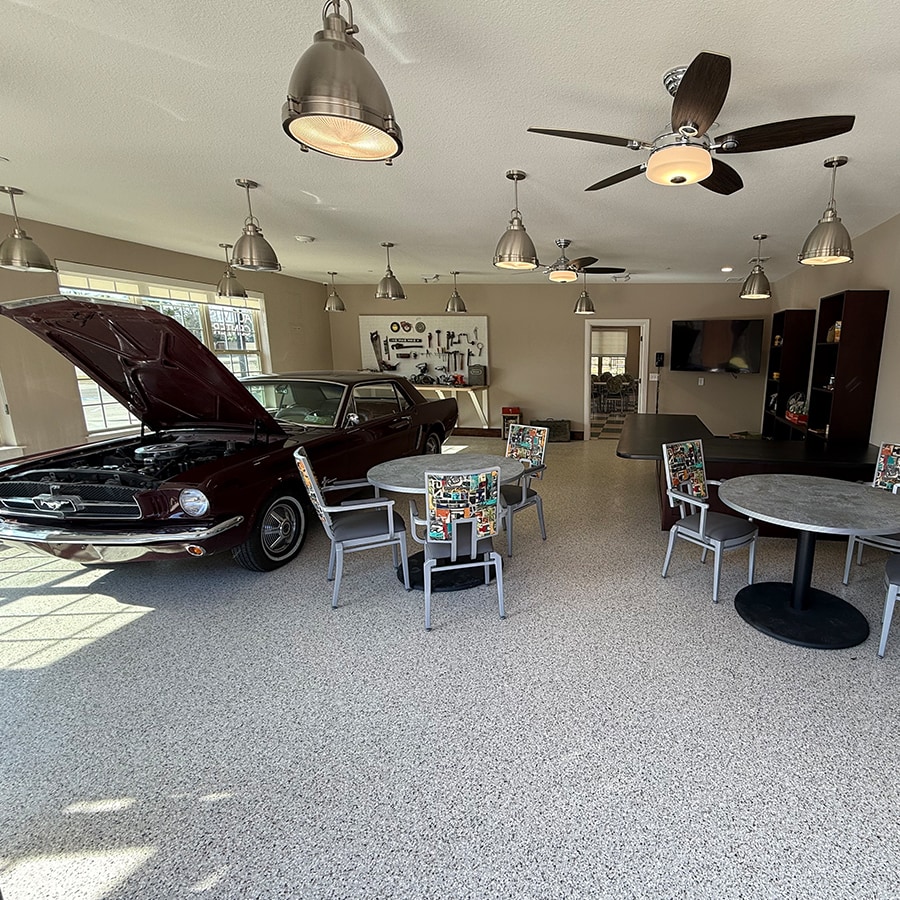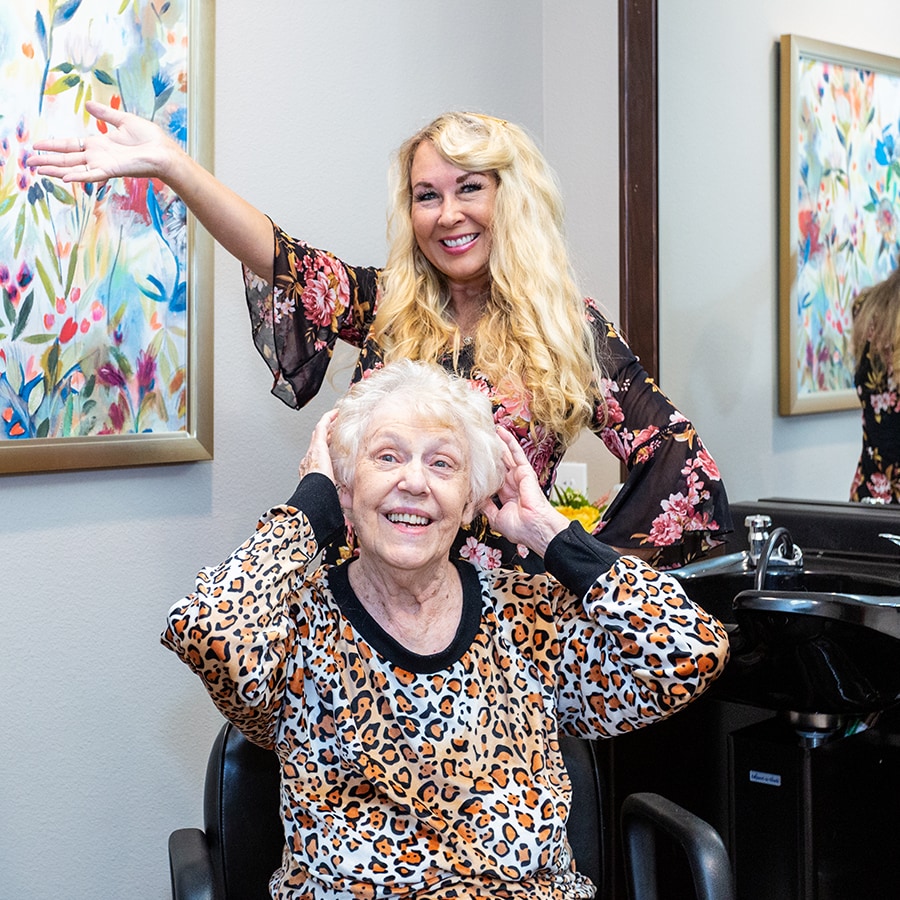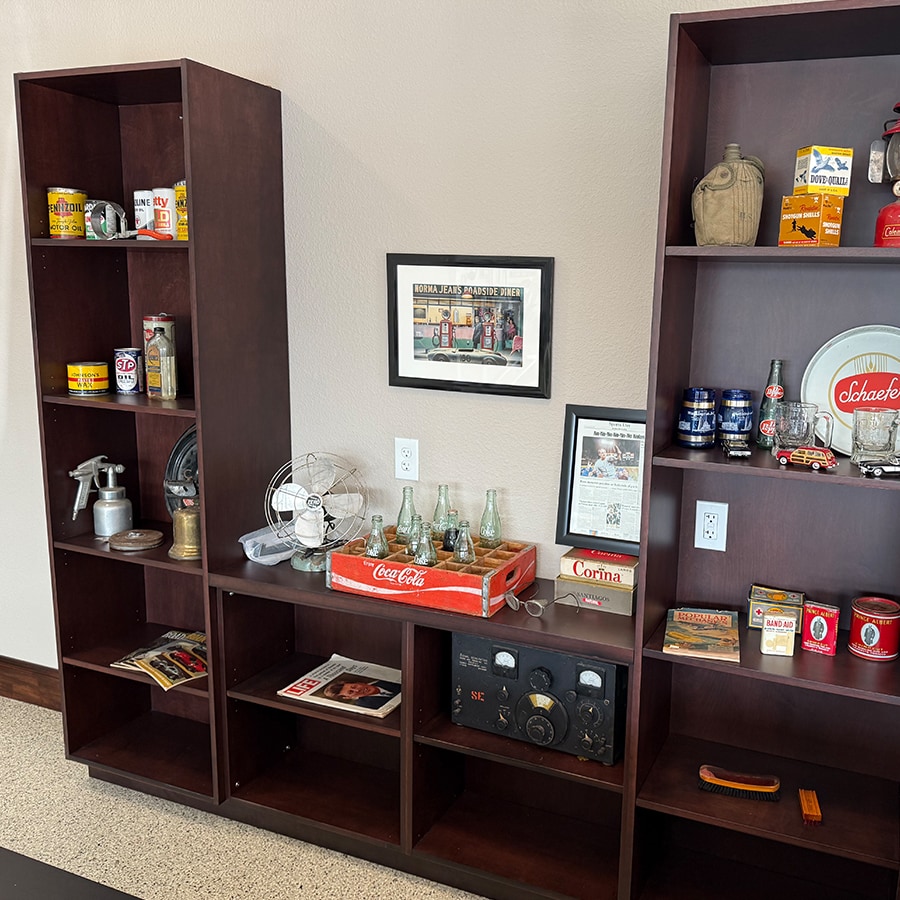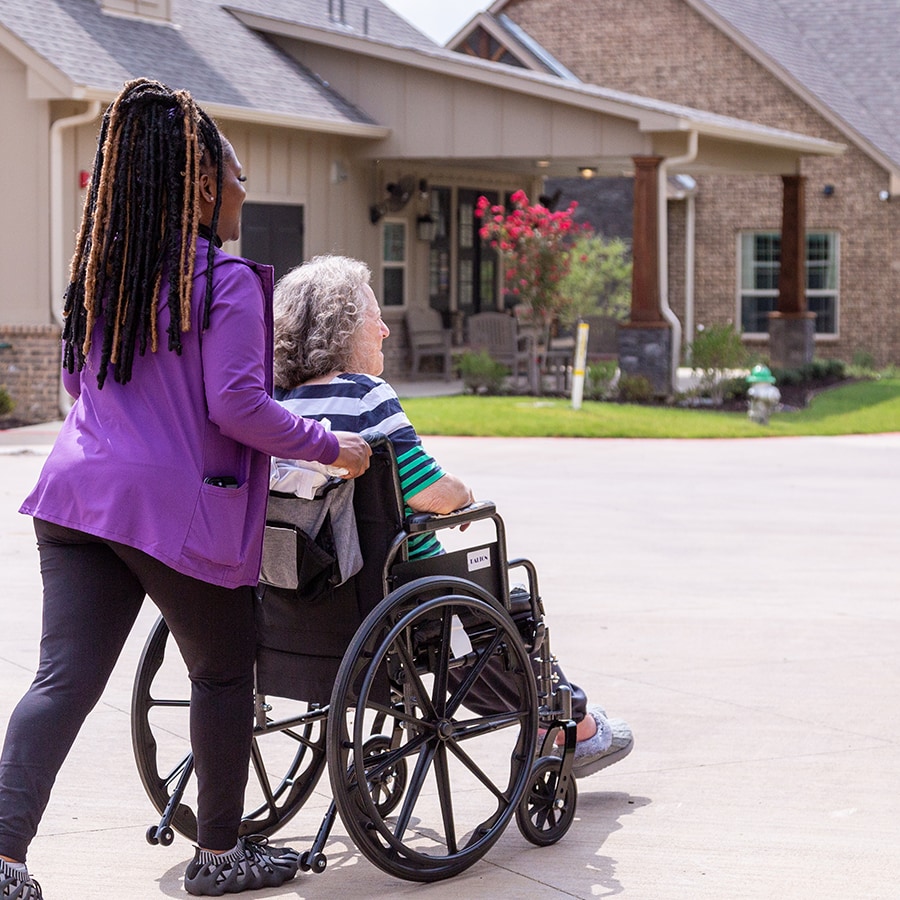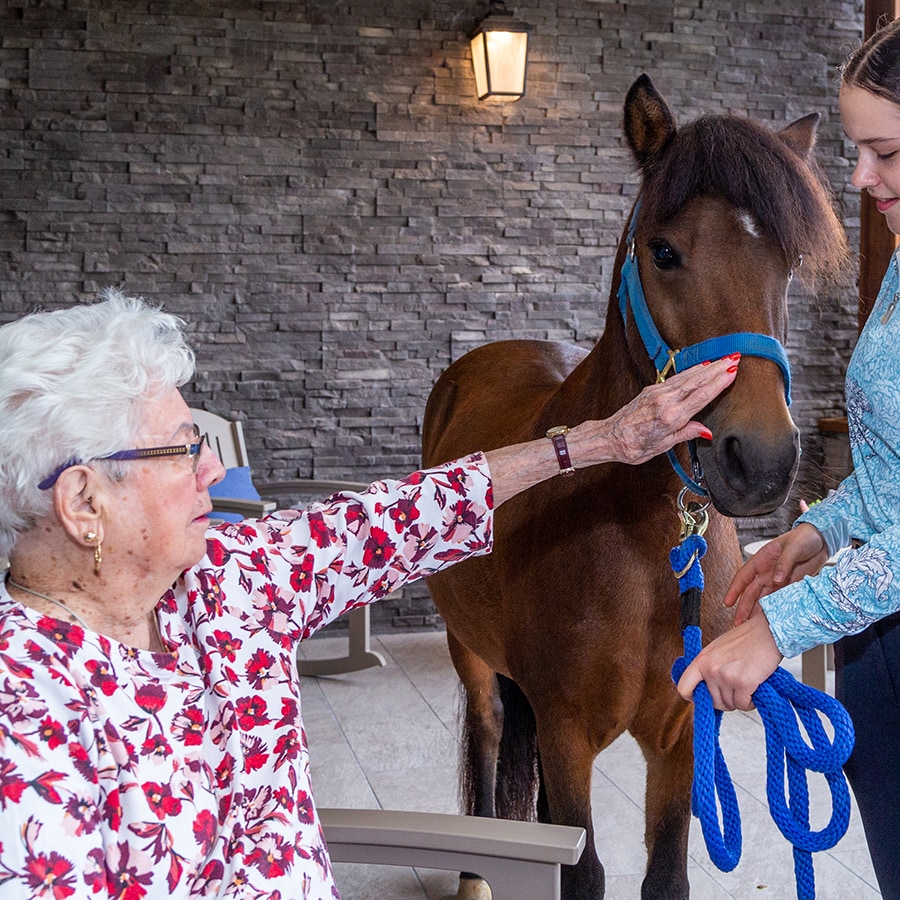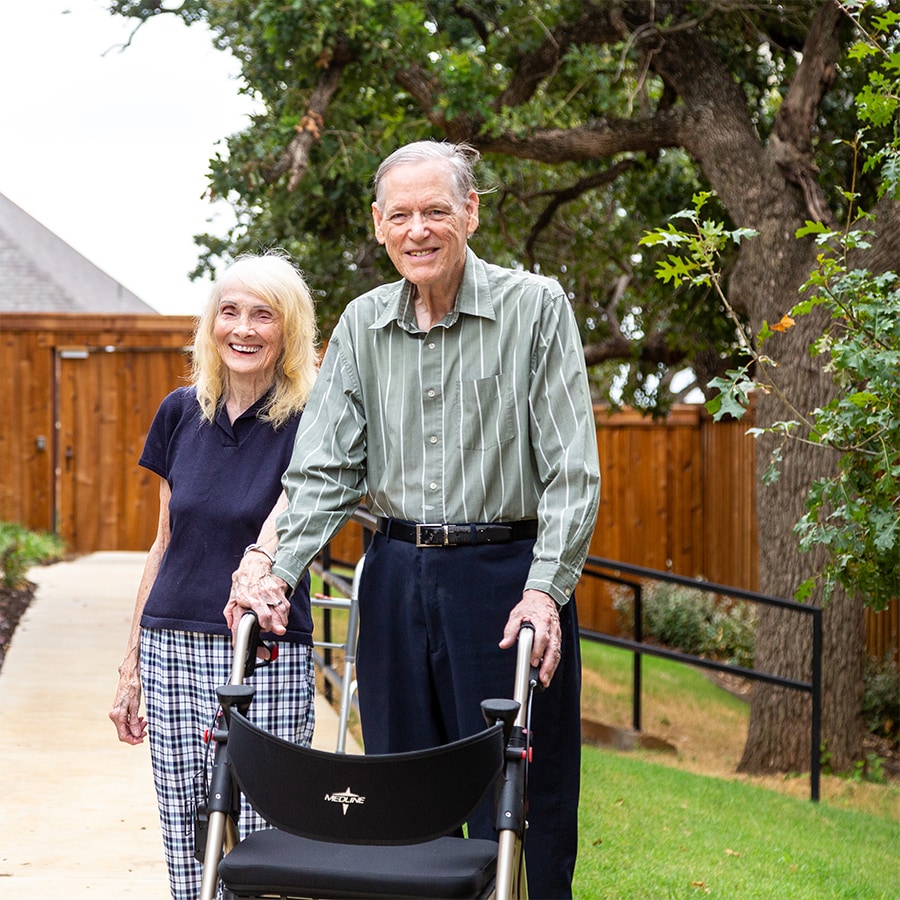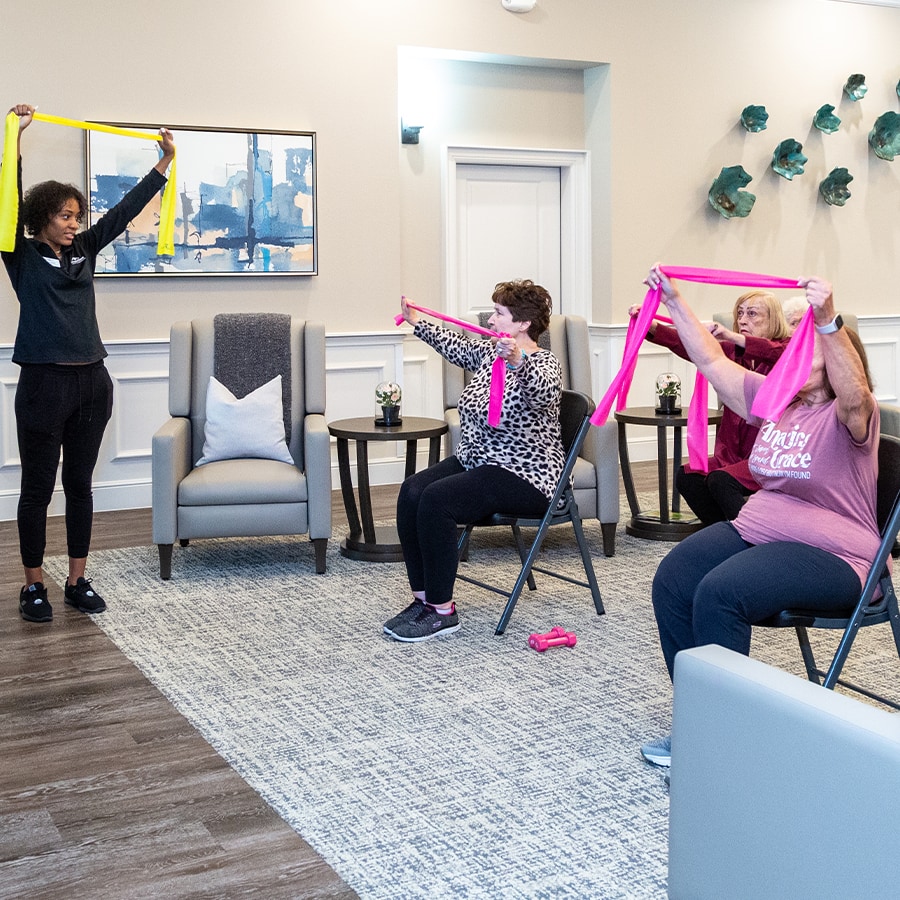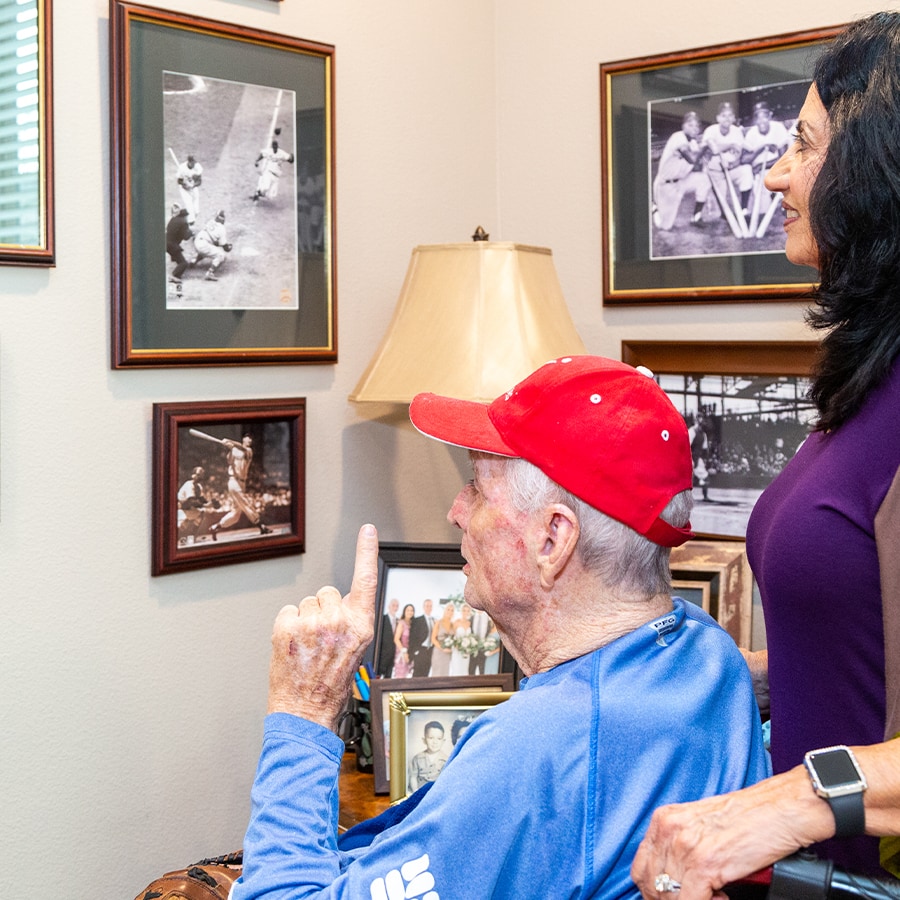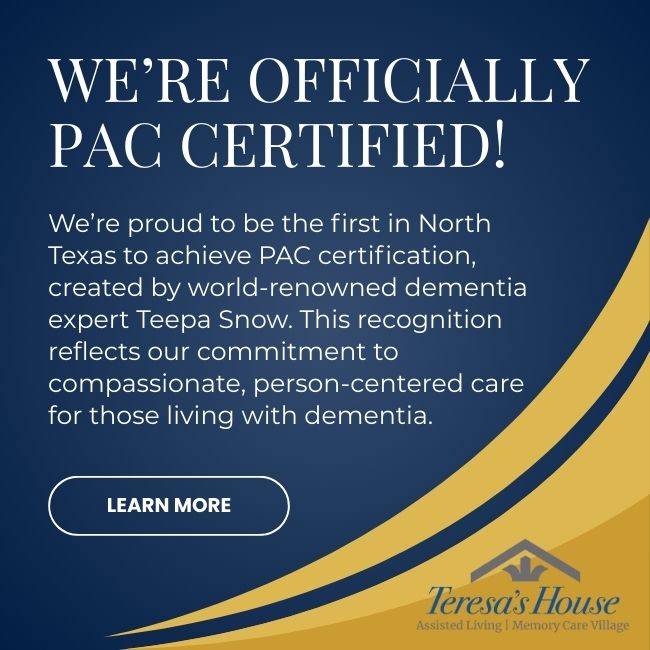A person’s living space can directly influence their health, happiness, and well-being. That’s why senior living options, like assisted living, have a comprehensive process for prospective residents to verify whether it’s the right environment to address their specific needs.
Determining a person’s assisted living eligibility encompasses 3 key areas: age requirements, health status, and support needs.
A prospective resident who meets the criteria can qualify if their physical health, medical review, and financial considerations align with the community.
Assisted living is a vibrant community that balances support with independence, providing older adults with the resources to thrive.
Meet our Assisted Living Residents
Assisted living is more than a long-term care community with comfortable apartment suites. The communities are vibrant, welcoming spaces where older adults can thrive, connect with others, and foster independence while balancing professional support.
Our residents at Teresa’s House in McKinney flourish in a nurturing environment that combines experienced care with vibrant community engagement, empowering them with the tools and support to live vibrant lives.
Residents in assisted living are relatively mobile and social. They value their independence but may need assistance with daily activities such as personal grooming, meal preparation, and medication management.
Assisted living also provides a valuable support system for families. With professional caregivers on hand, you can enjoy peace of mind knowing that your loved ones are safe, comfortable, and well cared for.
Who is Eligible for Assisted Living?
The perks of assisted living can benefit many aging adults, but that doesn’t mean it’s the right living option for everyone. Most places use a thorough eligibility and qualification process to confirm that the community can meet a prospective resident’s specific needs.
Here are the key eligibility factors that assisted living communities often consider.
Age Requirements
Most assisted living communities cater primarily to older adults, but there’s no strict age limit for eligibility.
Assisted living typically caters to individuals aged 55 or older. However, younger people with specific support needs may also qualify. What ultimately matters is whether our assisted living community can meet their unique needs.
Our community is proud to be a home for people of all ages and backgrounds. We warmly welcome people ready to embrace the benefits of assisted living.
Health Status
Although assisted living is geared towards relatively independent older adults who don’t need intensive medical care, people with chronic health concerns (like diabetes or arthritis) are still good candidates.
We can help manage these conditions by assisting with medication management, developing a nourishing diet plan, or transporting residents to medical appointments.
The physical layout of assisted living can accommodate varying mobility levels, including residents who use wheelchairs or walkers. However, people who are unable to leave their beds or require constant medical supervision may need more comprehensive care.
When it comes to cognitive health, assisted living can often provide valuable support for residents experiencing the early stages of cognitive decline.
However, as conditions like Alzheimer’s disease or other forms of dementia progress, a move to specialized memory care may become the more appropriate step.

Support Needs
Assisted living is ideal for people who need help managing some activities of daily living (ADLs) but don’t require intensive full-time care. These needs might include:
- Help with dressing, bathing, or grooming
- Medication reminders
- Meal preparation & dining assistance
The support we provide is tailored to individual needs. Some residents benefit from assistance with almost every daily task, while others are quite independent and only need occasional help.
However, skilled nursing care provides a higher level of support for individuals who require consistent medical attention.
At Teresa’s House in McKinney, we recognize the uniqueness of each resident. We personalize and update each care plan to meet our residents’ evolving care needs.
How to Qualify for Assisted Living
Once a potential resident meets the eligibility criteria, there are specific steps they’ll need to follow to qualify for assisted living.
Overall Health Assessment
These evaluations help communities understand a prospective resident’s current health status. The process typically includes reviewing a person’s:
- Medical history (i.e. vision, hearing, etc.)
- Chronic health conditions
- Mobility levels
- Cognitive & mental health
- Treatments, medications, & therapy plans
The information is the foundation for a personalized care plan for new residents. Existing residents also have ongoing health assessments. Regular updates allow the care team to monitor health changes and adjust care plans when needed.
For example, if a resident’s mobility changes, the care team can adapt their environment or routines to provide additional support, prioritizing safety and comfort.
Medical History Review
Understanding a future resident’s medical background is an essential part of planning for their care after they move in. The review allows our community care team to assess how our available resources and services can support their health and lifestyle.
During the review process, the care team carefully reviews prior diagnoses, medical procedures, and any ongoing treatments or medications. Transparent communication about current health conditions helps us identify specific care needs.
For example, medical history reviews can reveal important details, such as dietary requirements or the need to monitor specific health conditions.
Financial Considerations
Costs for assisted living can vary significantly between communities, so families need a clear understanding of pricing and available payment options. At Teresa’s House, we value transparency. We’re here to help guide families through these financial discussions so you can feel fully informed.
Many residents cover costs using a combination of personal savings, retirement funds, long-term care insurance, or veterans’ benefits. Additionally, families may explore support options, such as Medicaid or other federal assistance programs, to offset expenses.
Your Next Steps
Navigating the transition to assisted living requires a comprehensive approach, with your loved one’s safety and comfort always at the heart of the process.
At Teresa’s House, we’re here to guide you through this transition with care, compassion, and clear information. If you think assisted living is the right choice for your loved one, schedule a tour of our McKinney location.
